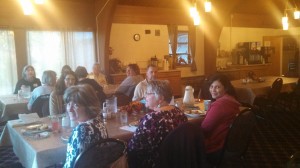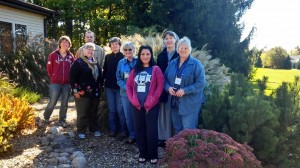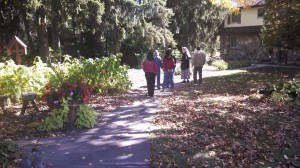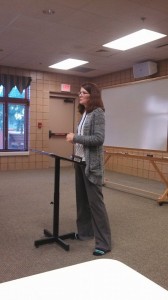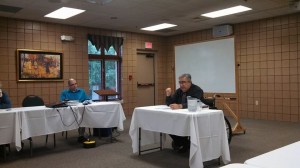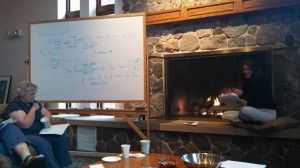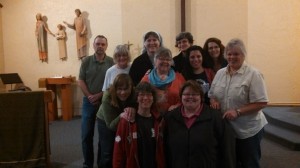On All Saints Day–Remembering Our Jewish Roots?
When I was growing up in the Bronx, we lived on the third floor in a five story walk-up on Sherman Ave. There were eight of us in a four room apartment. In the apartment below lived Leo and Sophie Rabinowitz. Quite often, in the middle of the night, blood-curdling screams filled the back alley and our apartment and the hallways outside. The screams were coming from the Rabinowitz’s. It was Sophie. She was having recurring nightmares. But Leo was the landlord, and no one dared complain about the eery howls that constantly reached the ears of so many. There was one man, however, who could not leave this alone. That man was my father.
I remember that Friday night long ago very well. The screaming started about midnight. It was September, and the windows were still open because it was hot, and the screaming seemed exceptionally chilling. Dad got up, and my brother whispered from his bed, “I think he’s going down there.” We got up and followed him, and, without hesitating, Dad walked up to Leo’s apartment door and began banging on it with his fist. We watched from the stairs as the door slowly opened. Leo poked his head out and just like that my father was embracing this little Jewish man who had buried his head in Dad’s chest, crying unashamedly. My brother and I, crouched down and peeking from the landing above, were stunned. Then Dad disappeared into that apartment with Leo Rabinowitz and did not leave for several hours. Sophie was having nightmares all right, recurring nightmares of her two boys, ages 12 and 9, being clubbed to death by the Nazis as they made her and Leo watch. Try as I may, I cannot imagine what those moments in their lives were like. They were loving parents and were helpless, unable to save their very own children, as godless people clubbed them to death. The Nazis tortured the parents further by allowing them to live.
My father has been dead for many years, but he is still teaching me about being Catholic today. How? The gospel reading for All Saints Day is from Matthew 5:1-12. The Beatitudes. When the priest read #7, “Blessed are the peacemakers, for they will be called children of God,” I remembered that Friday night long ago. I remember how a Catholic man reached out to his Jewish neighbor, and how they became friends. I also remember that because of that friendship Leo and Sophie Rabinowitz became friends with the other folks in the building. My father was the ‘peacemaker’ who initiated the peacemaking process. He did ‘GOOD’.
We have just celebrated All Saints Day and All Souls Day. During the reading of the Roman Canon, First Eucharistic Prayer, the following words are read prior to the words of consecration: “In communion with those whose memory we venerate, especially the glorious ever-Virgin Mary, Mother of our God and Lord, Jesus Christ, and blessed Joseph, her Spouse, —–and all your saints.” Were not all of them Jewish? Yeah..I think they were. There is no denying this fact. They are all canonized saints, and their Judaism was always part of who they were.
Finally, let me mention our Holy Father, Pope Francis. The Pope is very good friends with one of the primary Jewish leaders in Argentina, Rabbi Abraham Skorka. In October of 2012, he presented to Rabbi Skorka an honorary doctorate degree from the Pontifical Catholic University of Argentina. It was the first time such an honor had been bestowed on any Jewish man in all of Latin America. Upon presenting the award to Rabbi Skorka, the Pope (then Jorge Cardinal Bergoglio) said, “You cannot imagine how long I have waited for this moment.”


